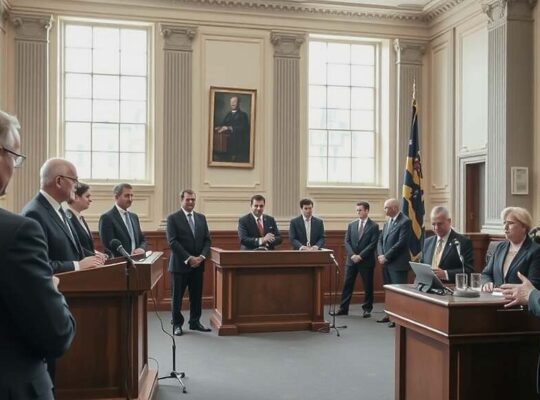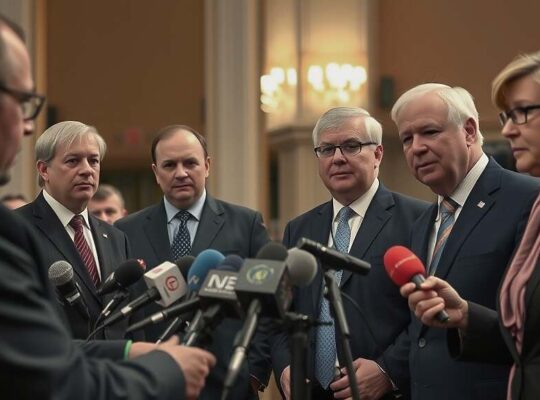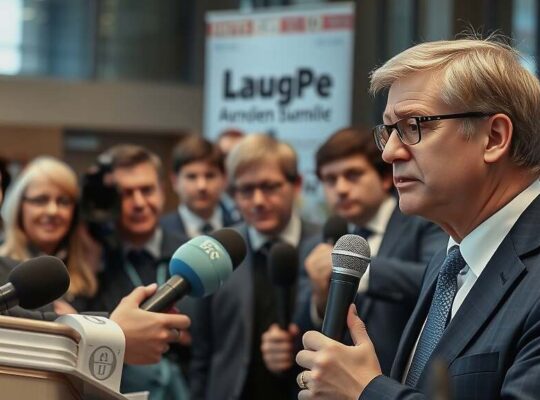Following recent critical remarks made by former German Economics Minister Robert Habeck against Bundestag President Julia Klöckner and CSU leader Markus Söder, alongside his announcement to resign his parliamentary seat, the conservative Union bloc has voiced strong disapproval.
Steffen Bilger, parliamentary group leader for the CDU/CSU, told the “Rheinische Post” on Tuesday that while he wished Habeck well for the future, his departure from political life demonstrated an inability to fully process his defeat in the recent federal election and relinquishing of his government position.
The former Green party leader had levelled serious accusations against Klöckner and Söder in an interview with the “taz” newspaper. He described Klöckner as consistently divisive and accused Söder and the Union of actively undermining and destroying potential coalitions between their parties. He also made a pointed personal remark about Söder’s public persona.
The CSU also criticized Habeck’s style following his resignation announcement, specifically citing the attacks on its leader. Alexander Hoffmann, the CSU’s parliamentary group leader, stated to the “Rheinische Post” that Habeck’s conduct further highlighted his unsuitability for the Economics Ministry.
Michael Kellner, a close confidant of Habeck and the former Green party’s executive director, defended the harsh criticism. Speaking to the “Welt” news channel, Kellner argued that Habeck had always championed direct communication and, therefore, should not be faulted for expressing his views frankly. He suggested that many share Habeck’s assessment of Klöckner.
Kellner also emphasized Habeck’s unique communication style as a strength, albeit one that also generated significant opposition. He characterized Habeck as an unconventional politician with a high degree of empathy and authenticity, qualities that attracted both strong support and outright rejection.
Kellner believes Habeck suffered from the polarization surrounding his person and the increasing divisions within society. He noted that such fragmentation negatively impacted Habeck’s efforts to bridge societal gaps.
Despite acknowledging Habeck’s contribution to advancing the energy transition and inspiring positive visions, Kellner conceded that Habeck ultimately failed to achieve his primary political goal: establishing the Green party as the dominant progressive force in the country. He stated that the party was unable to translate poll numbers into electoral success. According to Kellner, the final steps to achieve this goal proved elusive, hindered by considerable opposition.












